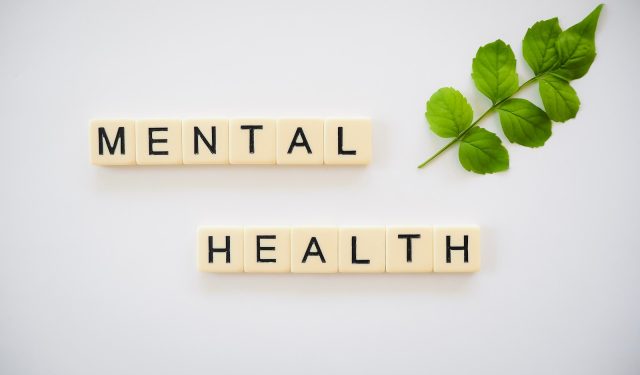
The era of bragging about sleepless nights and overloaded calendars is starting to lose its shine. For years, exhaustion was worn like a medal, proof that someone was chasing success hard enough to deserve it. Now the pendulum is swinging in the opposite direction. Across industries, people are trading relentless hustle for rest, clarity, and purpose. They’re not quitting ambition, just redefining what winning actually looks like. The new badge of honor isn’t how much you grind, but how well you manage to stay grounded.
The Shift From Hustle Culture To Healing Culture
For decades, our collective worth seemed tied to output. The harder you worked, the more you were praised. Burnout was brushed off as a byproduct of greatness. Then the pandemic hit, and the whole machine cracked open. Remote work blurred every line between life and labor, and suddenly people started asking whether constant fatigue was a fair price for success. That reckoning is still echoing across boardrooms, locker rooms, and dinner tables.
The conversation about mental health in athletes, parents, virtually everyone isn’t a side note anymore. It’s become central to how we define performance. From Olympic champions to tech CEOs, more high achievers are openly acknowledging that mental endurance is just as valuable as physical or intellectual power. It’s not weakness to seek balance; it’s strategy. Wellness isn’t indulgent—it’s maintenance for a long career and a full life.
When Balance Becomes A Power Move
There’s a quiet strength in knowing when to step back. That’s not something hustle culture taught us well. But in this new wave of mental health awareness, taking time off or setting limits signals control, not laziness. Athletes are sitting out tournaments to protect their minds. Executives are building meditation and therapy into their routines. Parents are realizing that showing emotional health at home matters more than orchestrating perfection.
The companies catching on fastest are rewriting workplace norms. Therapy stipends are replacing pizza Fridays, and flexible schedules are becoming standard, not special requests. This isn’t just HR trend-chasing; it’s good business. Employees with bandwidth to breathe think better, create better, and stay longer. A healthy mind fuels innovation far better than caffeine ever did.
The Money Is Following The Mind
Mental health is officially mainstream money. Investors who once chased fitness tech are now backing emotional wellness startups. Apps for mindfulness, sleep, and resilience are drawing major funding, while insurance providers are expanding mental health coverage at record speed. Even venture capital circles, once allergic to vulnerability, now treat mental well-being as a market edge.
It’s not performative. There’s a deep shift in how people value time, energy, and focus. You can see it in how younger generations spend. They’re not paying for things that flash success—they’re paying for experiences that preserve it. The right therapist or retreat is replacing the new car as a sign that someone’s investing in themselves for the long game.
Healing As The New Luxury
The conversation about luxury itself is evolving. Once defined by excess, it’s now being redefined by access—to quiet, to space, to peace. The wellness industry has exploded with boutique treatment centers and retreats that promise something more permanent than pampering. It’s less about cucumber water, more about confronting the parts of life that have been too loud for too long.
For those with the means, traveling to luxury mental health facilities in California, New York or anywhere in between is a great idea if you need to get away from your triggers and routines. These programs aren’t built around stigma or severity; they’re built around optimization. Whether it’s therapy in Malibu or mindfulness in the Catskills, the idea is to reset the body and mind somewhere designed for deep recovery. For many professionals, that’s the only way they can fully detach from the noise.
Technology Meets Therapy
Innovation in mental health is racing ahead, blending science and empathy in ways that finally feel accessible. AI-assisted therapy tools, neurofeedback devices, and virtual support groups are making care available to people who might never have walked into a therapist’s office. It’s not a replacement for human connection, but it’s an incredible extension of it.
Workplace mental health platforms now track emotional well-being as carefully as they track sales performance. Employers are learning that the future of productivity isn’t more software, it’s more humanity. In many ways, technology is helping us reconnect with what matters most: the ability to feel balanced, present, and resilient in real life, not just online.
New Status, New Standards
What we’re seeing isn’t a trend; it’s an identity shift. The modern definition of success includes peace of mind. The people quietly thriving today aren’t necessarily the ones posting about it. They’re the ones who found a way to live and work without losing themselves in the process. That kind of calm can’t be faked, and it can’t be bought in a flash sale.
Those who once saw therapy or rest as a weakness now see it as strategy. Health has become the smartest investment anyone can make, because when your mind works, everything else follows. Hustle is still admired, but it’s being outshined by the power of restoration.
Every generation thinks it has cracked the code to success until it meets the next one. Ours might finally be the first to realize that the finish line isn’t burnout, it’s balance. As the world redefines what wealth, power, and peace look like, mental health is taking its rightful place at the top of the list. The true legacy isn’t how much you accomplish, but how whole you stay while doing it.










